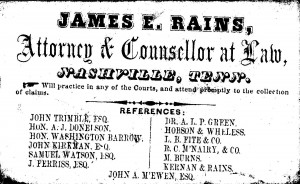 For the last several years, the demise of the yellow pages has been repeatedly predicted, but they will never die.
For the last several years, the demise of the yellow pages has been repeatedly predicted, but they will never die.
In the same way that AT&T and other “wire” phone carriers re-invented themselves as mobile carriers, the yellow pages has reinvented itself in search engines and online directories. These new and improved directories allow advertisers to have a bigger presence, with more information about their firm, at lower cost. Smart attorneys (and other advertisers) are taking advantage of these changes by creating better web sites (and more of them), optimizing their sites to improve search engine ranking, and promoting their sites through social media.
There are other improvements. Technology makes it easy to see which ad is working best, allowing you to adapt immediately instead of having to wait until next year’s print edition. You can increase or decrease your advertising investment with a click or two and you can just as easily change your headlines and copy and offers, making the same dollars bring in even more business.
If you previously spent $1,000 a month on yellow pages ads, that same $1,000 spent online could yield a much greater return. A small firm that had been limited to smaller ads in print directories can, with some marketing smarts, compete with firms with a bigger budget. Consumers obviously benefit by the added information and convenience of the online world.
So, for advertisers and consumers, the changes are positive. But what about the publishers of print directories? What will happen to them?
Some have already made the shift to online and are will thrive. Others, will die out. And some will see a void in the market left by the disappearance of their competitors and make a killing in the next frontier.
What do I mean? Our mailboxes today contain far fewer pieces of mail compared to ten years ago. As a result, direct mail advertising is potentially more effective. Smart advertisers will eventually shift dollars into mailings–catalogs, solo sales letters, coupon books, and so on, and I believe we’ll eventually see phone (and web site) directories being delivered by the post office. But, as more and more advertisers shift dollars from online to offline, the effectiveness of that advertising will decline and advertisers will shift yet again back to the Internet or to the next big thing.
Change is inevitable in business and advertisers need to be nimble to survive. Gone are the days when an attorney could write a check to “the” yellow pages, the only viable advertising option, and forget about it until the following year. Attorneys today must understand that advertising online is just one facet of an integrated marketing plan and they must be prepared to continually acquire the knowledge and resources needed to stay competitive.












Do lawyers need a blog?
Sorry, but you didn’t miss much.
From a technological standpoint, not much has changed since I switched to the blog format. I’ve changed the color and layout and added some new plug-ins, mostly having to do with social media integration, but not much else.
My site has grown because I focused on creating content, not on the latest bells and whistles. Content creates value for visitors, allows you to demonstrate your expertise, and brings traffic from search engines and from word of mouth. And so the number of subscribers to my newsletter has grown and the number of blog subscribers has grown and I have continued to sell products and services.
Do you need a blog? If you want to get more clients online I think you do.
A blog has several advantages over a static web site. As you update your content, search engines are notified and they bring visitors. As those visitors see the solutions you provide, they may (a) take the next step toward hiring you, (b) connect with you by subscribing to your newsletter or your blog feed or commenting on your posts, or (c) tell others about you via social media.
Your blog allows prospects and referral sources to see you “in action”. Your content is not just puffery about how great you are it is an exemplar of your abilities. As visitors become familiar with your style and hear your “voice,” as they get to know and trust you, your preeminence grows, your traffic grows, and your client base grows.
You can set up a blog yourself  in about an hour. WordPress makes is easy. There are many free and inexpensive “getting stated” videos available and you can hire people inexpensively to do it for you. Contact me if you would like some referrals.
Once you have your own blog, you control it; you don’t have to wait for tech support to do updates for you, you can do them yourself. It’s as quick and simple as using a web browser. And, other than paying for hosting (under $10/month), it’s free.
What about content–do you have enough to say? Trust me, you have enough. There is an endless amount of material you can supply. Everything from posts about the law and procedure in your practice areas, success stories you helped created, general business (or consumer) advice, guest posts from experts (referral sources) in allied fields, and much more. A post can be as short as a few paragraphs and as simple as you commenting on something you found on another web site or blog or in the news. And you can outsource content creation, too.
A blog may seem to be a big commitment but think of it as the front door to your online office. You won’t be there 24/7 but your presence will be. If you write an offline newsletter, publish articles, or do any public speaking or networking, you are already doing the things that are done online through a blog.
If you have a web site, you have something you can point to and that’s good. But you have to do the pointing. If you want free traffic, you need a blog.